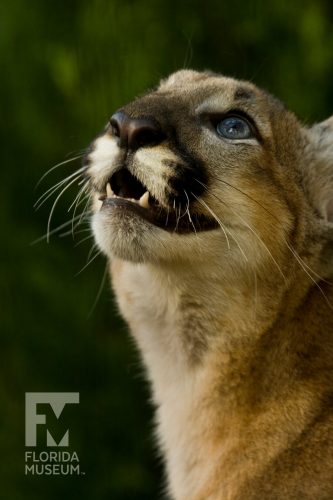There are over 5,000 species of mammals worldwide and more are being discovered all the time. They range in size from the tiny bumblebee bat (1.5 grams) to the blue whale (over 100 tons).

Mammals live in diverse habitats from desert to ocean. They fly, swim, run, glide, hop and much more. They live on all seven continents if you count marine mammals in Antarctica. Mammals are incredibly diverse and are exciting to study.
Here at the Florida Museum we study the evolutionary history of mammals. We primarily do this by examining their DNA, which carries a written record of their past. We also study the parasites of mammals, which in many cases have evolved in tandem with their mammalian hosts for millions of years. You can explore our many research projects here.
In addition to conducting research on mammals we educate the public about mammals in various ways. The Museum contains over 37,000 mammals in its collection, and the data associated with those specimens are fully searchable online.
Take a virtual tour of the mammal collections here! Follow the arrows to “walk” through the collection. Click on the various icons to see photos and 3-D models, download PDFs, and watch some videos!